In December 2024, 36 professionals from 26 African countries successfully completed an intensive, 90-day public health laboratory training program at BGI’s global headquarters in Shenzhen.
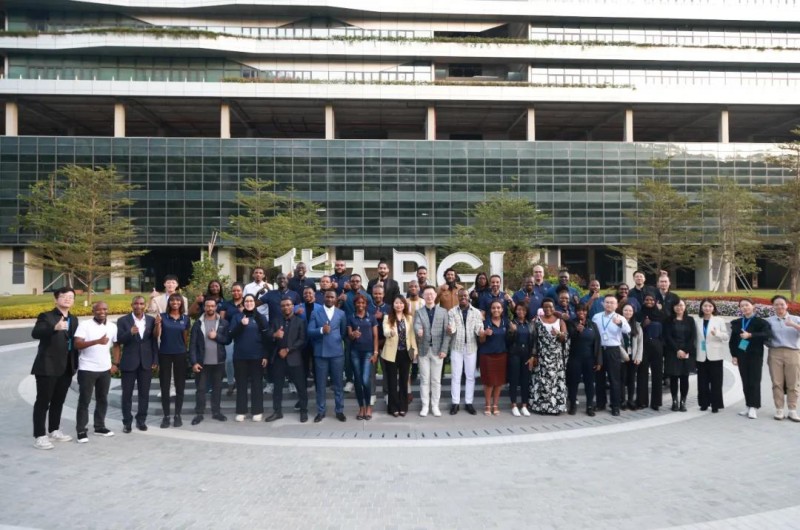 Group Photo of Graduates: A commemorative photograph of the 36 participants from 26 African countries, taken on the day of the closing ceremony, symbolizing their shared journey of learning and professional growth.
Group Photo of Graduates: A commemorative photograph of the 36 participants from 26 African countries, taken on the day of the closing ceremony, symbolizing their shared journey of learning and professional growth.
The program, sponsored by the Ministry of Commerce and organized by BGI in conjunction with the Hunan International Business Vocational College, aimed to enhance expertise in disease surveillance, diagnostics, and genomic analyses and promote continuing cooperation between China and the African Union in the field of public health.
From advanced sequencing techniques to biosafety management and data-driven public health strategies, the trainees acquired comprehensive skills to enhance their home countries’ capacity for infectious disease detection, prevention, and control. Through transferring both knowledge and hands-on experience, BGI sought to foster greater resilience and self-reliance in African public health systems, ultimately strengthening global health security.
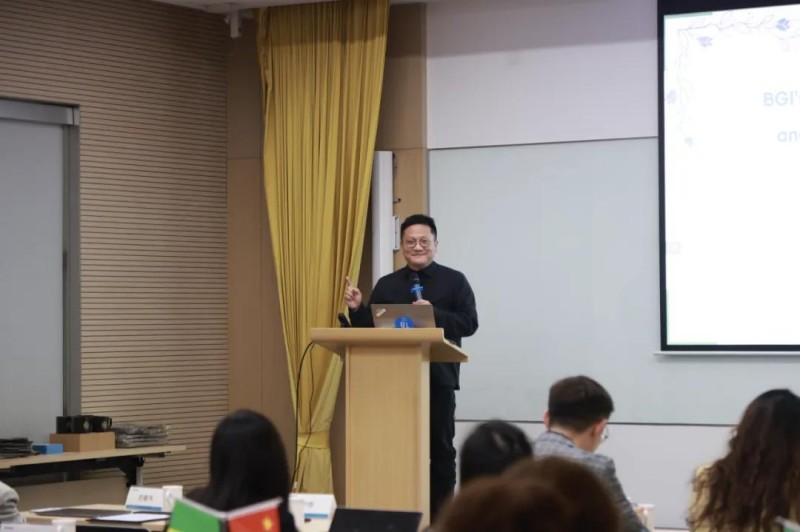 BGI Group CEO and Executive Director, Dr. Yin Ye, addresses participants at the closing ceremony, celebrating the successful completion of the 90-day public health laboratory training and reaffirming BGI’s commitment to strengthening global health collaborations.
BGI Group CEO and Executive Director, Dr. Yin Ye, addresses participants at the closing ceremony, celebrating the successful completion of the 90-day public health laboratory training and reaffirming BGI’s commitment to strengthening global health collaborations.
During the closing ceremony, Dr. Yin Ye, BGI Group CEO and Executive Director, congratulated the graduates on their determination and teamwork. He emphasized that the training served not only as a platform for technical advancement but also as a bridge for international collaboration. The participants had immersed themselves in cutting-edge genomic technologies, refined their laboratory management skills, and learned to leverage big data for precision diagnostics. Dr. Yin stressed that BGI remains committed to supporting African nations with shared resources, expertise, and technology, to help strengthen African laboratories in precision medicine and epidemiological preparedness.
Representatives from the trainee cohort, including Dr. Wael Hamed Roushdy Saif from Egypt and Ms. Agrippine Mukarurangwa from Rwanda, expressed their gratitude for the practical, “learning by doing” approach. They highlighted how the newly acquired competencies, from pathogen detection workflows to genomic data interpretation, would enable more accurate diagnoses, improved disease outbreak response, and stronger evidence-based public health policies.
Over the 90 days, the program encompassed a dynamic mix of theory, simulations, and real-world applications. Participants explored viral, bacterial, and parasitic pathogens, and practiced entire workflows from sample collection and rapid testing to genomic sequencing and result interpretation. This integrated training ensured that the professionals can now implement best practices on the ground, swiftly adapting to ever-evolving health threats. In addition, the training included exercises simulating outbreak response and deploying surveillance strategies, ensuring that participants gained not only technical proficiencies but also a crisis-ready mindset.
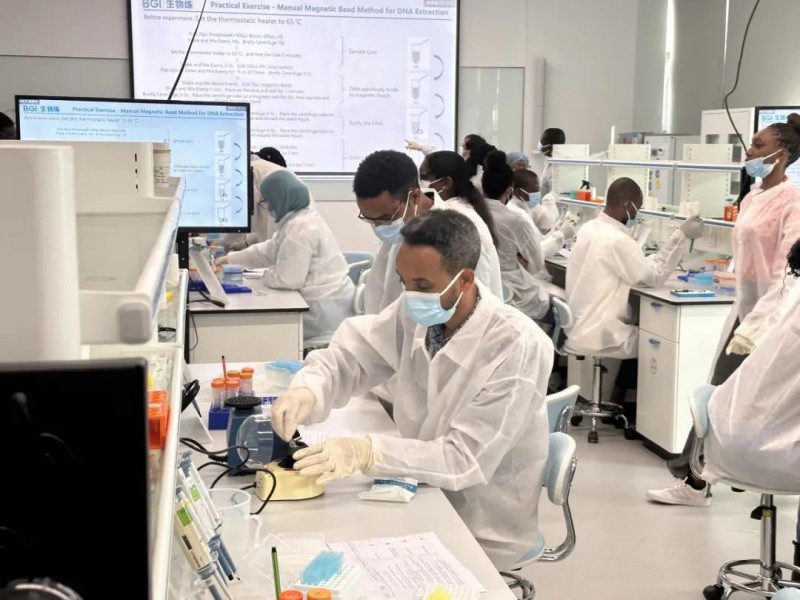 Laboratory Training: Trainees working in the laboratory, mastering the latest diagnostic and genomic testing techniques through a practical, experiential training module.
Laboratory Training: Trainees working in the laboratory, mastering the latest diagnostic and genomic testing techniques through a practical, experiential training module.
Cultural exchanges complemented the scientific training. The participants visited renowned Chinese cultural and technological landmarks, gaining insight into China’s rich heritage and its rapid advancements in innovation. These experiences fostered mutual understanding, respect, and the building of a collaborative global community.
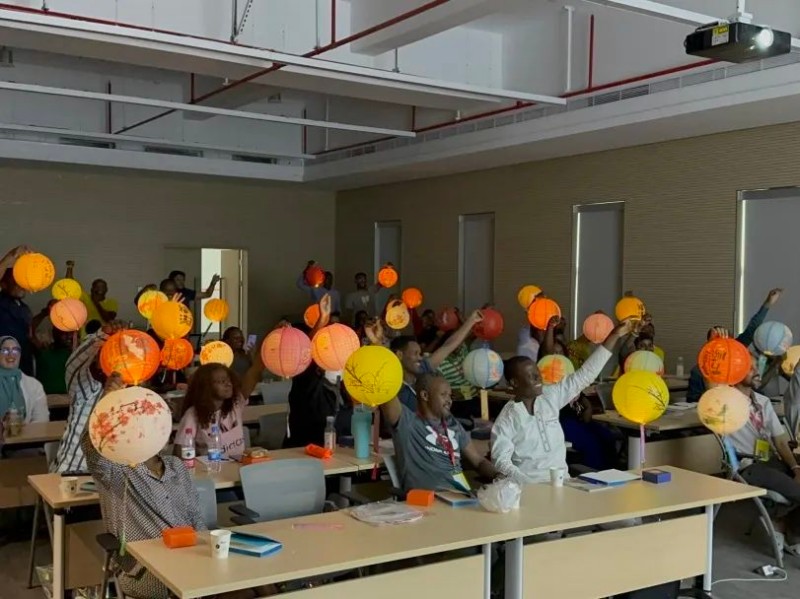 Cultural Exchange Visit: Participants exploring a local heritage site, reflecting the cultural dimension of the program that broadened horizons and strengthened mutual understanding.
Cultural Exchange Visit: Participants exploring a local heritage site, reflecting the cultural dimension of the program that broadened horizons and strengthened mutual understanding.
A highlight of the closing ceremony was the unveiling of the “African Microbiome Consortium for Infectious Diseases,” symbolizing the continuing partnership and collective vision for strengthening microbiome research, pathogen surveillance, and cross-border data sharing throughout the African continent. With BGI’s ongoing technical support, this alliance aims to cultivate robust, Pan-African networks for rapid disease detection and response, leading to more resilient healthcare systems and improved outcomes in the face of emerging public health challenges.
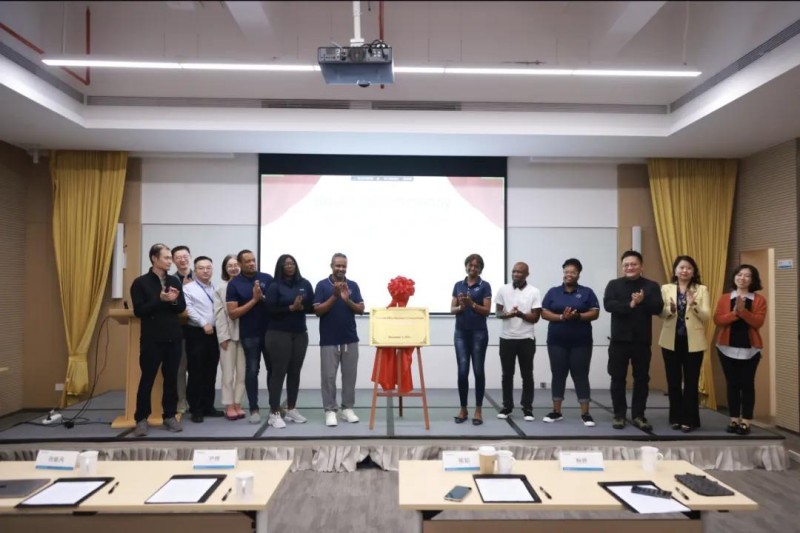 Unveiling the Alliance: The official unveiling of the “African Microbiome Consortium for Infectious Diseases” plaque, marking a new chapter in sustained cooperation and joint scientific endeavors.
Unveiling the Alliance: The official unveiling of the “African Microbiome Consortium for Infectious Diseases” plaque, marking a new chapter in sustained cooperation and joint scientific endeavors.
This training marks a significant step in BGI’s longstanding dedication to international collaboration, capacity-building, and the sharing of genomic and multi-omics expertise. It also marks a decade of support by BGI to the African continent during times of health crises, from Ebola to the COVID pandemic.
Beyond new technical proficiencies, what endures is a collective aspiration; leaders, scientists, and researchers working together to create stronger surveillance networks, heighten laboratory standards, and improve health outcomes. As participants return home equipped to transform their laboratories and inspire their teams, they carry forward a spirit of resilience, cooperation, and scientific innovation that will serve as a cornerstone for future progress in global public health.



